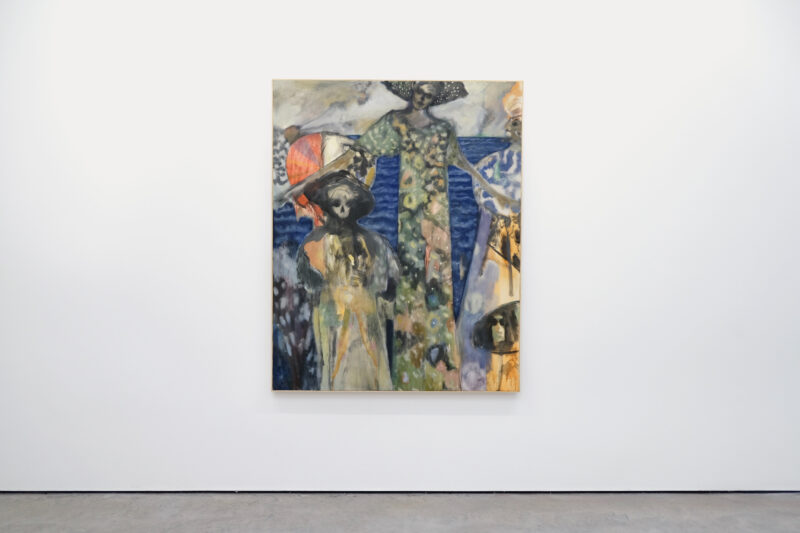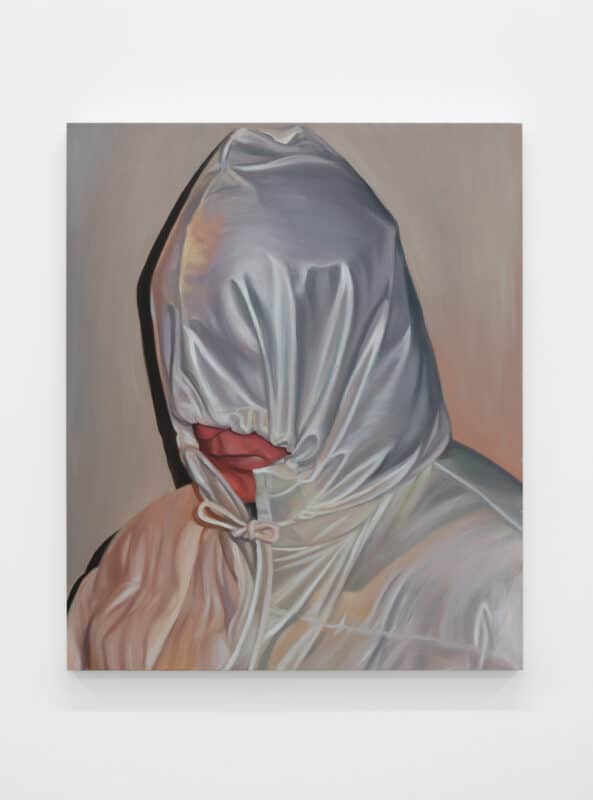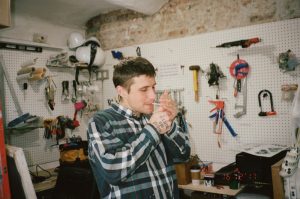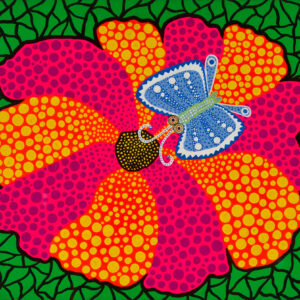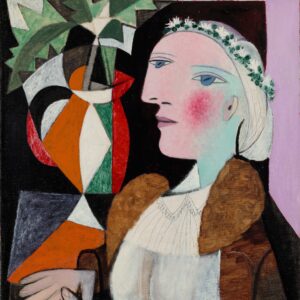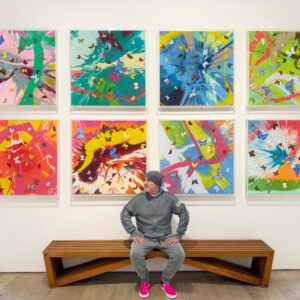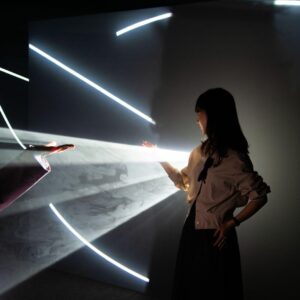Make sure you don’t miss Jarvis Boyland’s exhibition Lucky Stars at MAMOTH closing Thursday 22nd December. The exhibition features new paintings by Boyland and marks his European debut.
The paintings of Jarvis Boyland conduct an ardent inquiry into the varieties of touch. By touch, I mean the cadence of feeling as it animates his hand. His is a singular touch: tender and attentive, supple and assured. He pursues his chosen mediums – drawing and painting – with exquisite finesse.
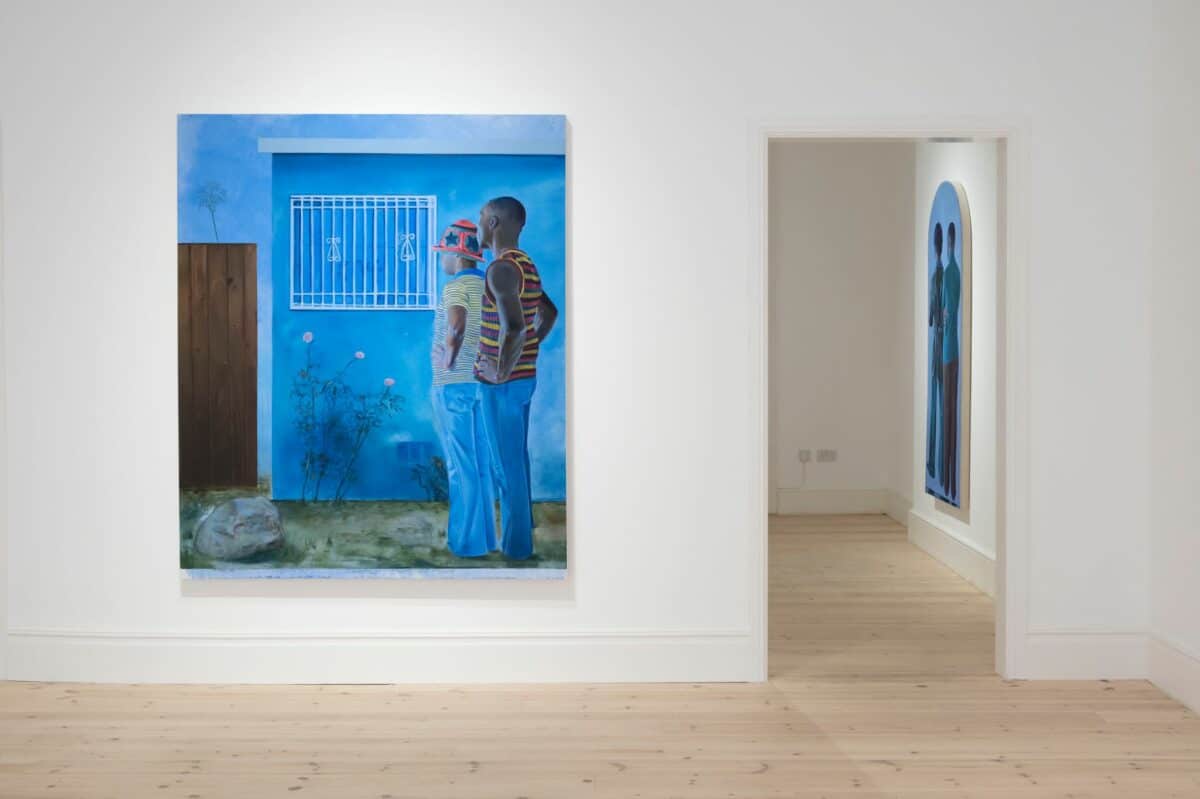
There is everywhere in his works evidence of a wrist full of grace, working with lavish, patient delicacy as it ushers paint across canvas, or forges the trajectory of a fresh line across paper. What Boyland’s hand renders are portraits (group and individual) of gay Black men largely ensconced within handsome domestic settings. The figures who inhabit his works are men with whom Boyland has shared the warmth of intimacy – friends and lovers. Indeed, Boyland sometimes appears among these men, posed in tableaux that evoke the drama and suspense of film blocking. But Boyland is less interested in creating idealised images of Black gay social life than in probing the capacity of paint to render its intricacies: the elations, the tensions, the reconciliations. His scenes convey the way desire no sooner flares than it dissipates, leaving a wistful vacancy in its wake, or the way love scales the border between friendship and romance. They contain the ambivalence of vulnerability, the luckless asymmetry of yearning.
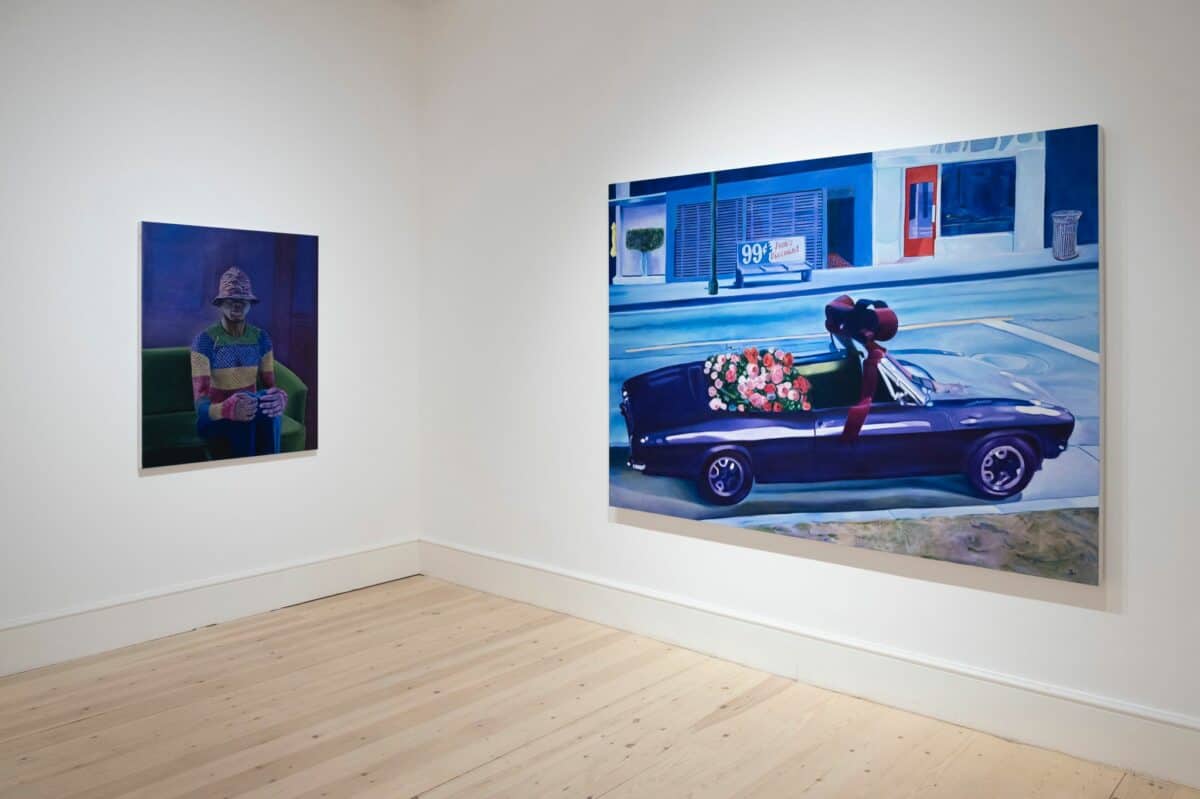
Boyland’s palette abounds with bright, vivid hues. A deft colourist, he relishes the moods conjured by pinks, periwinkles, reds, blues. When he renders flesh, he gives it a luminous, almost iridescent quality, which derives in part from his approach to building up the surface of the canvas. For Boyland, the underpainting is the emotional ground from which his paintings bloom. His works frequently proceed with an all-over ground of fuchsia, swept across the canvas like a profusion of phlox. His method’s fascination springs from his subtle technical experiments with the painted surface. Take, for instance, his decision to leave certain areas of the underpainting exposed so that the countenance of a figure brims with an array of tones.
These effects create transparencies and opacities that echo the shifting subtleties of his figures’ consciousness. A question seems to flow through his facture: how might the surface of a canvas reflect the vast surface of a sitter’s personality?
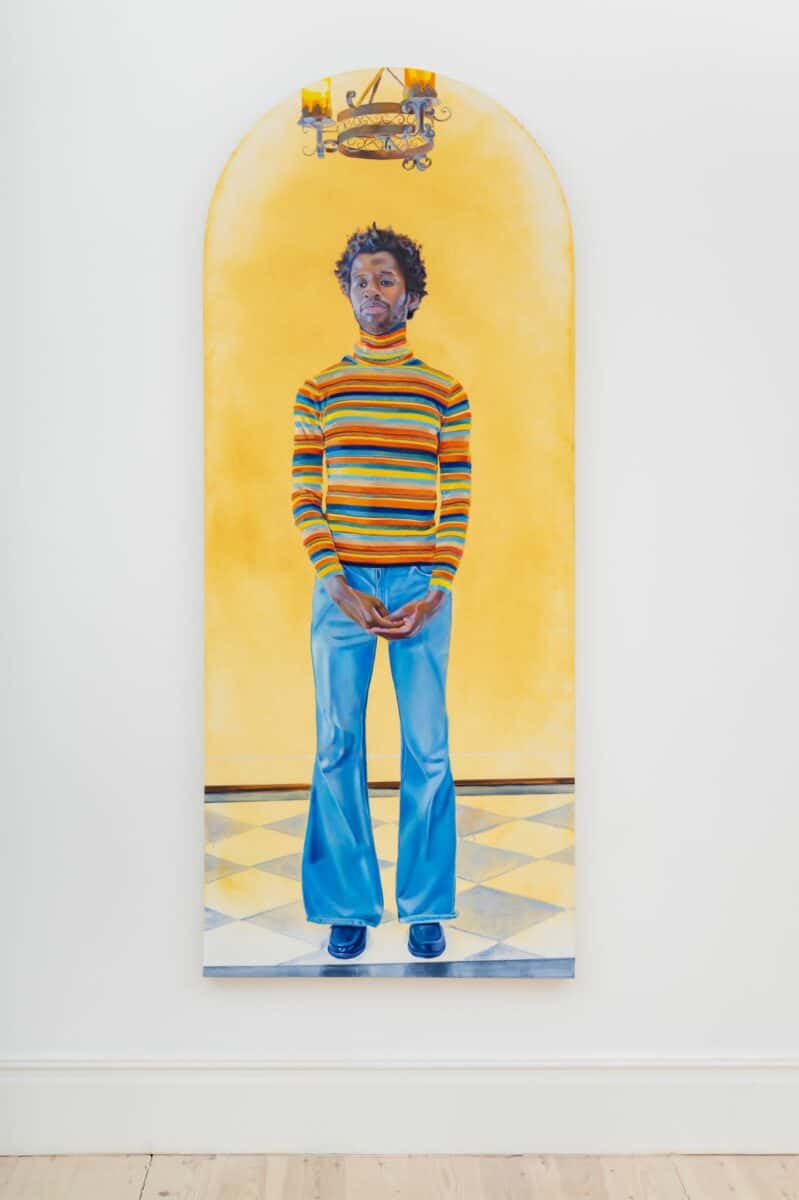
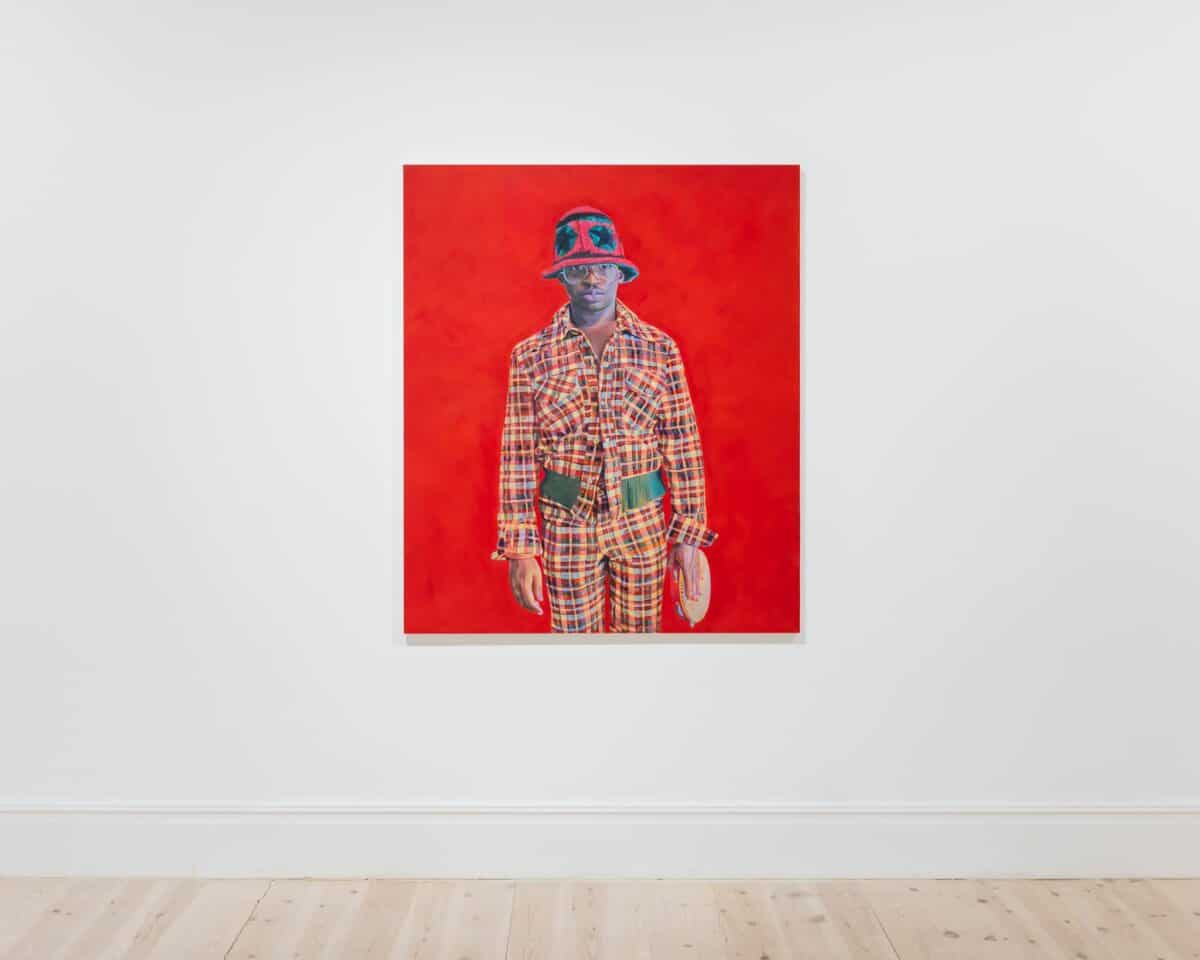
In recent years, Boyland has fashioned a series of self-portraits that show him before monochromatic backdrops. In these works – a potent record of self-invention – he composes variations on the song of himself. Majorette, 2022, is all stately nonchalance. Boyland is marvellously arrayed in a vintage red plaid leisure suit, its sleeve cuffs upturned just so at his wrists. His figure glows within a field of red. His gaze,
framed by the brim of a knitted hat, is set in a look of serene concentration.
The work is an homage to the late Barkley Hendricks’s 1975 painting Blood (Donald Formey), the artist from whom Boyland has inherited a keen, sensuous eye for Black style, which is to say a sensitivity to the way individuals assemble a self in a world hostile to their being. Like Hendricks, Boyland is alive to the ennobling, totemic allure of a garment, the way it functions as a kind of bulwark against the snags of daily life, ensheathing its wearer in beauty. Notice the particular attention Boyland pays to rendering textiles. He delights in the hang of denim bell-bottom trousers, the articulate darting of a belted leather trench coat, the richly intricate patterns of plaid, the smooth, lustrous finish of satin. Much of the clothing worn by his protagonists is drawn from his personal wardrobe, a wardrobe replete with his penchant for the sophistication and playfulness of seventies tailoring. Like any good, or at least eclectic, wardrobe, Boyland’s is furnished by chance.
The protagonists of the paintings featured in Lucky Stars are marked by a kind of reticence, a refusal to divulge their particulars. In most of the works their faces are partly obscured. Occasionally they are withheld from the viewer altogether, as in Hauser Bl, 2022, in which a couple turn their backs to us, seemingly transfixed by some detail of the architecture surrounding them. Boyland doesn’t indulge the old romance of the face as a map to one’s character; he frustrates and rebuffs the eye steered by th e impulse to extract a sitter’s ‘essence’. The interiority of his figures is not on offer. Return to the surface, they seem to admonish, to the formal possibilities of paint, colour, texture.
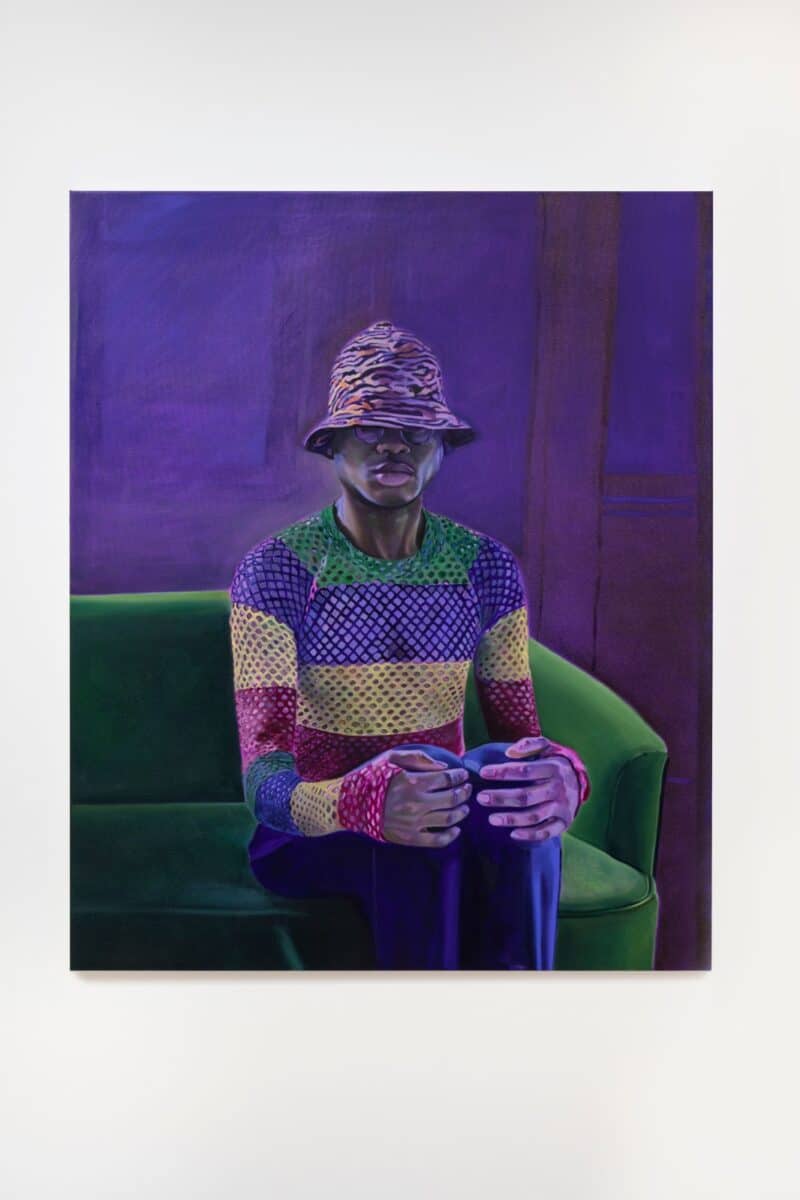
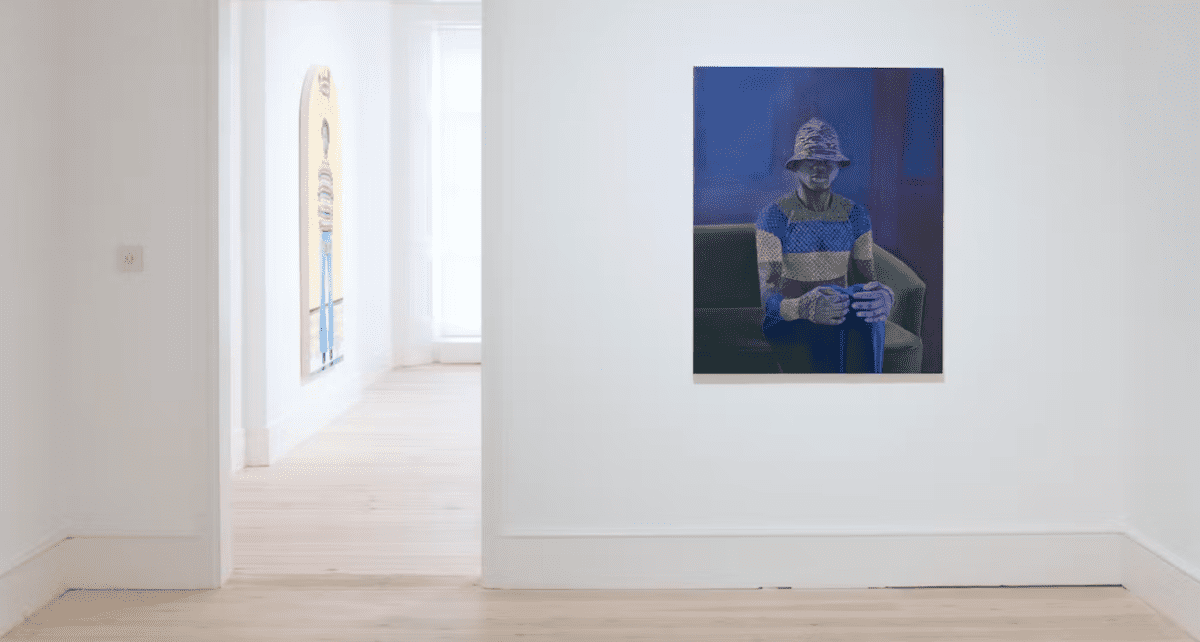
Consider the sly portrait of a man who sits, his hands cupping his knees, at the edge of a lush green sofa, encased in an air of icy seclusion. A long-sleeve mesh-knit top is stretched taut across his torso, revealing the variegated hues of his flesh beneath. The wide brim of a striped bucket hat shades his eyes, his gaze. He is aloof, indrawn, and inscrutable. It is not mere coyness, this reticence, but a tactic, a way to depict Black gay life without being hemmed in by the flattening, tiresome obligations of representation, with its overwhelming emphasis on visibility, disclosure and exposure. Boyland is well aware of the exigencies of an art market increasingly engorged on a peculiar appetite for Black figurative painting. He has spoken of a certain strain of melancholy – a bereftness – that attends the practice of portraiture resulting from
seeing his pictures whisked away from his studio to be peddled as commodities. And so these figures comport themselves with oblique gestures as if to elude the harsh glare of public intrusion. Here are paintings that insist on a register of Black gay life that unfurls to a rhythm all its own, a rhythm of self-possession and privacy, contemplative, quiet.
Words Ade J. Omotosho
Ade J. Omotosho is a writer, editor and art historian
Jarvis Boyland Lucky Stars – extended to 22nd December 2022, MAMOTH
About the artist
Throughout his deeply felt portraiture, Jarvis Boyland explores Black queerness and masculinity in the digital age. The artist makes softly textured paintings with a palette of washed-out pastels and sources his tender scenes from photographic imagery. Boyland’s cool, well-dressed figures evoke the work of Barkley L. Hendricks. His references have included filmmakers Robert Altman and Roman Polanski, the band Beach House, and painters Emma Amos and David Hockney. Boyland received his BFA from the University of Memphis before attending the Skowhegan School of Painting and Sculpture in 2018. He has exhibited in Los Angeles, Baltimore, Memphis, and Chicago.
